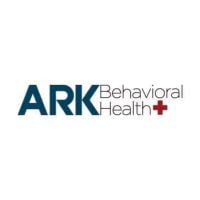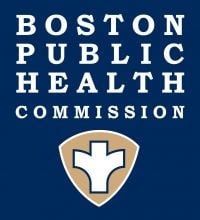AdCare Outpatient
Drug Rehab Center in Quincy, Massachusetts
AdCare Outpatient Addiction Treatment Facility in Quincy, MA provides a comprehensive and personalized addiction recovery program that includes detox, intensive outpatient care and aftercare support, as well as dual-diagnosis services and is accredited by JCAHO and accepts private health insurance.
About This Massachusetts Facility
AdCare Outpatient - Hancock Street, situated in Quincy, Massachusetts, is a renowned addiction treatment facility that has been providing comprehensive care for individuals struggling with substance abuse, drug addiction, and alcoholism. With a history of delivering high-quality, personalized treatment, AdCare Outpatient - Hancock Street offers a flexible outpatient program designed to accommodate the busy schedules of its clients while ensuring they receive the necessary support to achieve lasting recovery.
• Specialized treatment for opioid, substance, drug, and alcohol addiction, as well as dual diagnosis
• Variety of treatment options, including aftercare support, partial-hospitalization, intervention, outpatient, detox, and drug rehab
• Accredited by the Joint Commission on Accreditation of Healthcare Organizations (JCAHO), ensuring adherence to the highest standards of care
• Integrated substance abuse and dual diagnosis care, combining medical and psychiatric services with individual and group counseling and evidence-based therapy interventions
AdCare Outpatient - Hancock Street is accredited by the Joint Commission on Accreditation of Healthcare Organizations (JCAHO), demonstrating its commitment to providing top-notch care. The facility accepts private health insurance, making treatment more accessible to those in need.
The experienced team at AdCare Outpatient - Hancock Street is well-equipped to address a wide range of addictions, including opioids, substances, drugs, alcohol, and dual diagnosis. They offer a comprehensive array of treatment methods and levels of care, such as aftercare support, partial-hospitalization, intervention, outpatient, detox, and drug rehab. The dedicated staff, consisting of therapists, counselors, doctors, and case managers, works collaboratively to develop personalized treatment plans that cater to the unique needs of each individual, ensuring the best possible outcomes for long-term recovery and sobriety.
Genders
Ages
Modality
Additional
Accreditations

JCAHO
Conditions and Issues Treated
Rehab centers in Massachusetts exist to help individuals bounce back from substance abuse. Drug addiction refers to the use of illegal drugs and improper use of prescription drugs. Substance abuse includes all problems that stem out from using psychoactive substances. Centers like AdCare Outpatient are here to help.
Opioid addiction is one of the most common forms of addiction Massachusetts. Opioids include drugs like heroin, oxycontin and fentanyl. They are prescribed to treat pain, but they are often abused and they are addictive. The addiction is treated by detoxing the body, so it no longer needs the chemicals in the drugs. This is followed up by therapies to correct behavior and target the root of the problem.
Some of the most common co-occurring disorders are schizophrenia, depression, and bipolar disorder. Most rehab facilities in Quincy, MA like AdCare Outpatient provide patients with a dual diagnosis. Dual diagnosis gives rehab the means to treat addiction while restoring mental and emotional health.
Levels of Care Offered at AdCare Outpatient
This center offers a variety of custom treatment tailored to individual recovery. Currently available are Aftercare Support, Detox, Drug Rehab, Dual-Diagnosis, Intensive Outpatient, Intervention, Outpatient, Partial-Hospitalization, with additional therapies available as listed below.
Detox is the first step of rehab. It involves giving a person time to get the toxins out of their body. During detox, the patient gets ill and they will often start using again to get rid of these unpleasant feelings. That’s why it’s so important to have a Quincy medical professional at AdCare Outpatient present. A Massachusetts medical professional will make sure patients don’t start using during detox. They will also provide medication to ease their symptoms and coach them through on a mental level.
Daily trips to the hospital that provides the treatment include intensive outpatient services (IOP). IOP in Massachusetts is appropriate for patients in residential recovery facilities that have been diagnosed with addiction. Patients return to their everyday lives gradually, increasing the likeliness of success in treatment.
An Outpatient Rehab Program is a part-time drug rehab program for treating individuals in Quincy, MA with mild addiction or mild-to-moderate drug withdrawal symptoms. It generally requires about 10 to 12 hours every week.
Doctors can administer on-the-spot medication to ease withdrawal symptoms such as anxiety, increased heart rate, and even depression. Groups such as Alcoholics Anonymous (AA) and Narcotics Anonymous (NA) can be used as a part of outpatient treatment to help maintain sobriety.
An intervention is a planned conversation between an addicted person and their loved ones. Usually, a licensed alcohol and drug counselor or an interventionist supervises the conversation. The presence of a specialist is essential if your loved one has a history of a severe mental disorder, suicidal attempts, abusing mood-altering drugs. A proper intervention is an excellent bridge to an individual’s sobriety.
Aftercare Support at AdCare Outpatient, in short, is the support provided to a patient after they have finished treatment. It allows them to adjust to everyday life. It may entail setting them up and enrolling them in services such as Narcotics Anonymous (NA) and Alcoholics Anonymous (AA) inside a halfway house. Career coaching may also be offered to patients to help them get back into the workforce.
Therapies & Programs
Individual therapy refers to one-on-one psychotherapy between a patient and their AdCare Outpatient therapist. Individual therapy seeks to help identify the issues that drive and contribute to a client’s addiction or alcoholism. Another goal of individual counseling is to assist the client to learn how to manage their lives without alcohol or drugs.
Group therapy occurs in a group setting as opposed to a one on one setting. It benefits patients by providing a feeling of support and letting them know they are not alone. Patients at AdCare Outpatient also learn to build trust and understanding and gain perspective through discussions.
After experiencing trauma, it’s crucial to look for a facility that can provide trauma therapy. This approach zeroes in on the traumatic incidents that a patient has encountered in the past, recent or not. It’s been widely known that trauma can make an individual resort to alcohol or other substances to mask their troubles and pain. Trauma can originate from domestic violence, sexual abuse, an early encounter with death, sexual assault, and many more. The goal of trauma therapy at AdCare Outpatient in Quincy, MA is to help the patient see beyond the trauma and move forward. Mental health professionals will facilitate the patient’s journey and see to it that he or she is no longer a victim of his or her traumatic experiences and has wholly regained his or her personal power.
DBT, also known as dialectical behavior therapy, is a form of cognitive behavioral therapy (CBT) that helps people understand how their thoughts, behaviors, and feelings all connect. This can give them more control over their actions, effectively stopping self-harm ideations and attempts in some patients. It can also help put people in control over some mental struggles, like borderline personality disorder.
Most individuals suffering from addiction have low self-awareness, so they end up making poor decisions. Cognitive Behavioral Therapy (CBT) is suitable for patients recovering from an addiction of any kind. Through it, patients become more aligned with their thoughts, emotions, and behaviors, giving them a better opportunity to respond appropriately to temptations and negative feelings.
This therapy modality at AdCare Outpatient in Quincy, MA strengthens a person’s ability to stay on top of their emotional state and learn new stress management techniques so they won’t give in to the temptations easily. Moreover, CBT helps people communicate and express their emotions well, which can be vital in relapse management. CBT is also suitable for managing co-occurring disorders like depression and bipolar illness.
When it comes to maintaining sobriety, people who quit recovery without developing life skills are disadvantaged. While teaching life skills at AdCare Outpatient is difficult, support with aftercare helps patients learn these skills over time. Life skills include getting a career, living in a good environment, self-care, and finance management, all in Quincy, MA.
A 12-Step Program is a common method that is used to treat addiction. This format is used for both drug and alcohol treatment. It is extremely popular and successful for large numbers of people. It is a relatively simple set of steps that are done continuously in order to move through life with awareness, accountability and honesty. 12-Step programs are available in most every city in the Unites States. They are available in person, electronically and virtually through phone or web-based meetings.
Payment Options Accepted
For specific insurance or payment methods please contact us.
Is your insurance accepted?
Ask an expert, call (888) 674-0062
Additional Details
Specifics, location, and helpful extra information.
Quincy, Massachusetts 02169 Phone Number(508) 999-1102 Meta DetailsUpdated April 15, 2024
Staff Verified
Patient Reviews
There are no reviews yet. Be the first one to write one.
Quincy, Massachusetts Addiction Information
Massachusetts has one of the highest rates of drug abuse in the country. More than half a million Massachusetts residents abuse alcohol while more than 1.5 million use illegal drugs each year. This drug and alcohol usage is the cause of over 8% of all deaths in the state. In 2017, Massachusetts ranked in the top 10 of the states with the highest opioid overdose rates.
More than 10% of Quincy, MA residents have used illicit drugs. Specifically, 20.4% of those aged 18 to 25 years old living in Quincy have used marijuana and cocaine at least once in their lifetime, while 4.2% have used heroin. The good news is that there are many drug treatment facilities in Quincy, MA, that can help people recover from addiction and abuse.
Treatment in Nearby Cities
- Great Barrington, MA (120.9 mi.)
- Abington, MA (10.4 mi.)
- Buzzards Bay, MA (40.1 mi.)
- Lorain, MA (79.4 mi.)
- Jamaica Plain, MA (7.1 mi.)
Centers near AdCare Outpatient
The facility name, logo and brand are the property and registered trademarks of AdCare Outpatient, and are being used for identification and informational purposes only. Use of these names, logos and brands shall not imply endorsement. RehabNow.org is not affiliated with or sponsored by AdCare Outpatient.





